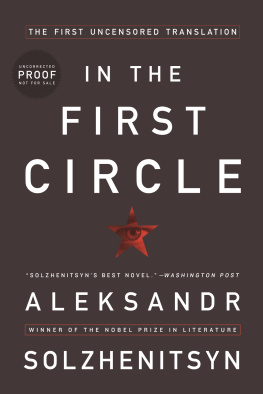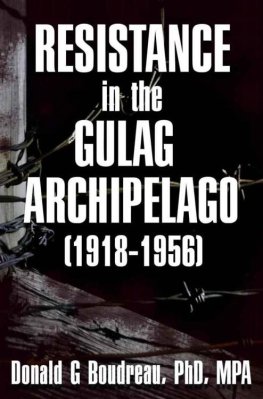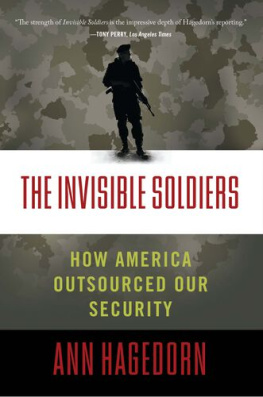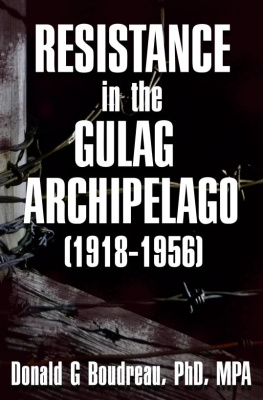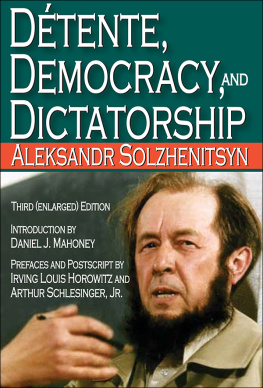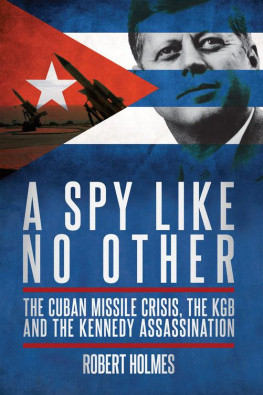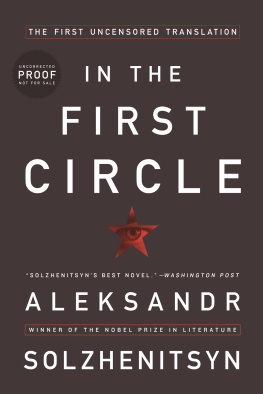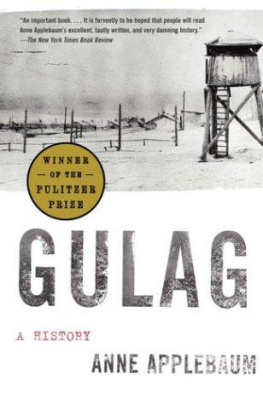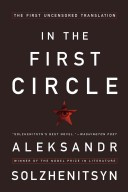IN THE
First Circle
A NOVEL
THE RESTORED TEXT
Aleksandr I. Solzhenitsyn
Translated by Harry T. Willetts

To my friends from the sharashka
Contents
I T HAS TAKEN a half century for English-language readers to receive the definitive text of the best novel by the man who may well be the most famous author of our times. Such is the fate of art created under a totalitarian regime. In a desperate attempt to get his literary artifact published at all, the author took it upon himself to sever some of its parts, a gruesome act of sacrifice. Yet the works artistic power was so great that even in its wounded condition it drew much praise. The authentic version of the novel traveled an extraordinarily rough road from composition to publication, and the dramatic story of the unkind cuts inflicted on it along the way deserves to be known in all its details. For the restored works appearance in the present volume is a major publishing event.
Aleksandr Solzhenitsyn initially composed In the First Circle from 1955 to 1958, when he was in his thirties. In 1968 an expurgated version titled The First Circle came out in many languages. The loss in English of the preposition In , doubtless through an innocent decision, subtly shifts the novels focus from people in a place to the place itself; the present version eliminates this distortion. Before the author died in 2008, four months short of his ninetieth birthday, he knew that the novel as he intended it was finally scheduled to appear in English a year thereafter. The years between 1958 and 2009 left plenty of time for the novel to endure a tortured textual history. Compared with the version previously available in English, the plot has been altered, depictions of some major characters have been substantially modified, new characters have been introduced, and many entirely excised chapters have been reinstated. For readers familiar with the previously available English version, In the First Circle will be a revelation.
Solzhenitsyn wrote the book under exceptionally difficult circumstances. In 1953, as he was about to emerge from the Gulag after eight years of incarceration, he contracted cancer, which brought him near deaths door in the months that followed. Consigned to perpetual internal exile in Kazakhstan after prison and camp, he found work as a village schoolteacher. In every spare moment he wrote. In the First Circle was his largest project, and he lavished great care on it. No sooner had he finished the first draft in 1958 than he put it through two revisions.
The drama of his life story took a quantum leap forward when in 1962, as a total unknown, he made his sensational entry onto the worlds stage with the publication of One Day in the Life of Ivan Denisovich , a story about life in the Soviet prison camps. While that short work was under consideration by the prestigious Moscow journal Novy Mir , Solzhenitsyn wrote a fourth draft of In the First Circle in 1962. One Day appeared with the imprimatur of no less a personage than Premier Nikita Khrushchev and electrified readers in the Soviet Union and around the world.
Hoping to parlay one success into another, Solzhenitsyn decided to try to squeeze In the First Circle through the censors sieve. Yet, anticipating that its themes transgressed strict Soviet limits, he tempered his hopes with realism and in 1964 put the manuscript through a process of lightening. The pruned and politically toned-down result of this act of self-censorship was what he later called an ersatz, truncated version; the number of chapters dropped from ninety-six to eighty-seven. In an augury that Solzhenitsyns sacrificial pragmatism was doomed to fail, the KGB in 1965 broke into the apartment of a friend of his and made off with a copy of the novel, which then circulated among selected officials. Although Novy Mir had agreed to publish the novel in its eighty-seven-chapter form, higher authorities kept withholding their approval. (Fascinating insights into the Soviet regimes hostility toward In the First Circle became available in 1995 when formerly secret government documents were published under the title The Solzhenitsyn Files .) Another major work of his, Cancer Ward , came closer to receiving the backing of the official Soviet Writers Union, but it, too, remained blocked. Solzhenitsyns window of opportunity had closed.
The 1960s established Solzhenitsyns reputation as a courageous hero. He checked with defiant resistance every move by the Soviet regime to stifle him, as if he were a chess master playing a game with life-and-death stakes. Meanwhile the Western press closely watched the unfolding struggle, and the free world rooted for him. In 1968, with official harassment relentlessly constricting his options, he took the desperate step of authorizing the publication in the West of the lightened version of In the First Circle , a copy of which he had been able to send out. The secretiveness required for this transmission from East to West meant that he lost control over the book and could not see it through press. Almost simultaneously Cancer Ward also appeared in the West, though without the authors permission. And when he was expelled from the Writers Union in 1969, prominent Western writers signed letters of vociferous protest.
Both long novels, like the short One Day in the Life of Ivan Denisovich before them, were widely hailed as major literary achievements. The double-barreled evidence led one American scholar to declare, No longer can there be the slightest question about his literary stature or doubt of its permanence. Another established American critic called The First Circle the greatest Russian novel of the last half of the century. British critics joined the chorus, one describing it as a majestic work of genius and another judging it arguably the greatest Russian novel of the twentieth century. A handful of years later, when the Soviet authorities forced Solzhenitsyn into Western exile and he began to make speeches, political controversies would come to color, or discolor, assessments of his fiction, but the broadly appreciative opening round of reactions rested solidly on artistic criteria. In the meantime, unknown to anyone outside the tight-knit circle of helpers whom he later dubbed his invisible allies, he was holding in reserve a nearly finished blockbuster nonfiction work, The Gulag Archipelago , which was ready to be released when it would do the most good in his ongoing campaign against the ideological stateand which had the potential to become the checkmate move in his chess game with the regime.
Not until 1978, as Solzhenitsynby then living in Vermontput together his first, twenty-volume Collected Works , did he return In the First Circle to its authentic form of ninety-six chapters, each of which was refined to take on an aesthetic unity of its own. In the version now reaching us, nine chapters are entirely new to English-language readers, and a dozen more are substantially altered. It is a testament to Solzhenitsyns artistic power that an unperfected version of In the First Circle not only received high praise from the start but retained a wide readership through four decades. He died secure in the conviction that the book he left to posterity was even better.
The English translator of the canonical text is Harry T. Willetts, renowned for combining fidelity to Solzhenitsyns rich, complex Russian with supple equivalents in English prose, and the only person Solzhenitsyn fully trusted to render his fiction in English. Willetts was pressing to finish his work right up to the time of his death at age eighty-two in 2005. The editing of the English text entailed filling in a few blanks left by Willetts, tying up loose ends, regularizing punctuation and other mechanical details, and replacing Briticisms with American diction and idiom.
Next page
